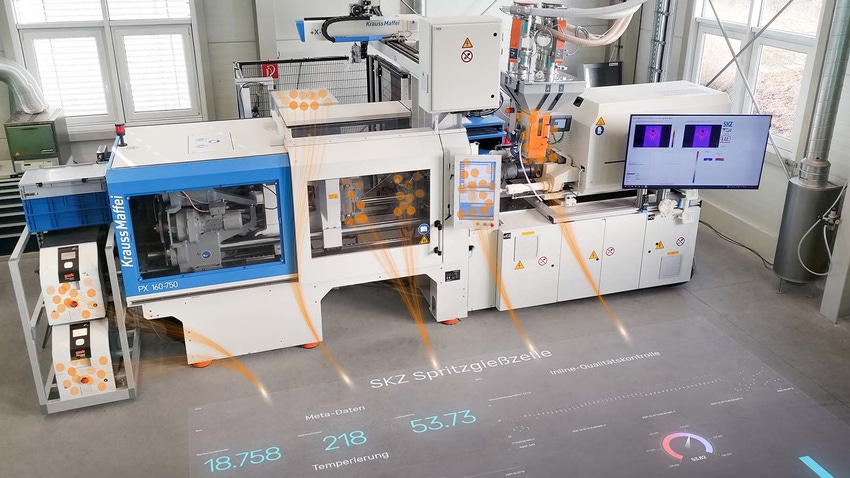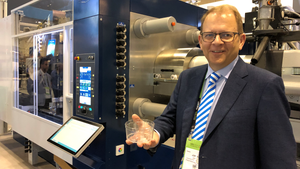New Frontier in Injection Molding Process Monitoring
A process monitoring and control system for injection molding automatically detects deviations in product quality, identifies probable cause, and provides operator with instructions to correct the problem.
November 28, 2023

At a Glance
- “ProBayes” project led by SKZ Plastics Center and Fraunhofer Institute for Manufacturing Engineering and Automation IPA
- Method was demonstrated on a fully networked injection molding cell at SKZ
- Lays groundwork for digitalization of injection molding production
Researchers in Germany have developed a process monitoring and control system for injection molding cells that automatically detects deviations in product quality, identifies the most likely cause, and provides the press operator with instructions for correcting the problem.
The “ProBayes” project led by the SKZ Plastics Center in Würzburg, Germany, and the Fraunhofer Institute for Manufacturing Engineering and Automation IPA (Fraunhofer IPA) successfully applied Bayesian principles to the injection molding process. Bayesian networks are described by the research partners as “statistical methods for modeling processes in which quality-relevant process parameters and their dependencies are connected by nodes and edges. Conditional probability distributions are assigned to nodes so that dependent process variables can be accurately predicted.”
The method was demonstrated on a fully networked injection molding cell at SKZ. This included measurement systems, peripherals, and the injection molding machine itself, all of which were networked using OPC UA and MQTT, said researchers in the news release. Sophisticated inline measurement technology provided direct feedback on part quality, which can be recorded and stored for each cycle.
The relationship of part weight to process variables of the injection molding machine are modeled by the Bayesian network, enabling a root cause analysis when the part weight deviates from the target value, identifying the probable cause and providing the machine operator with targeted recommendations for action. The process was successfully demonstrated on an injection molding cell in live operation in front of interested companies at SKZ.
"We were able to create immensely valuable groundwork for the digitalization of injection molding production in general and lay the foundation for the profitable integration of the generated results into production environments for companies,” commented SKZ’s Christoph Kugler in a prepared statement.
Also participating in this project were KraussMaffei Technologies GmbH, which provided the injection molding machine and support with data collection; Erium GmbH, which lent its expertise in Bayesian networks; and codecentric AG, which helped with data science issues.
The two-year research project was funded by the German Federal Ministry of Economics and Technology.
Companies interested in learning more about this project and how it might benefit their injection molding processes are invited to contact SKZ.
About the Author(s)
You May Also Like




